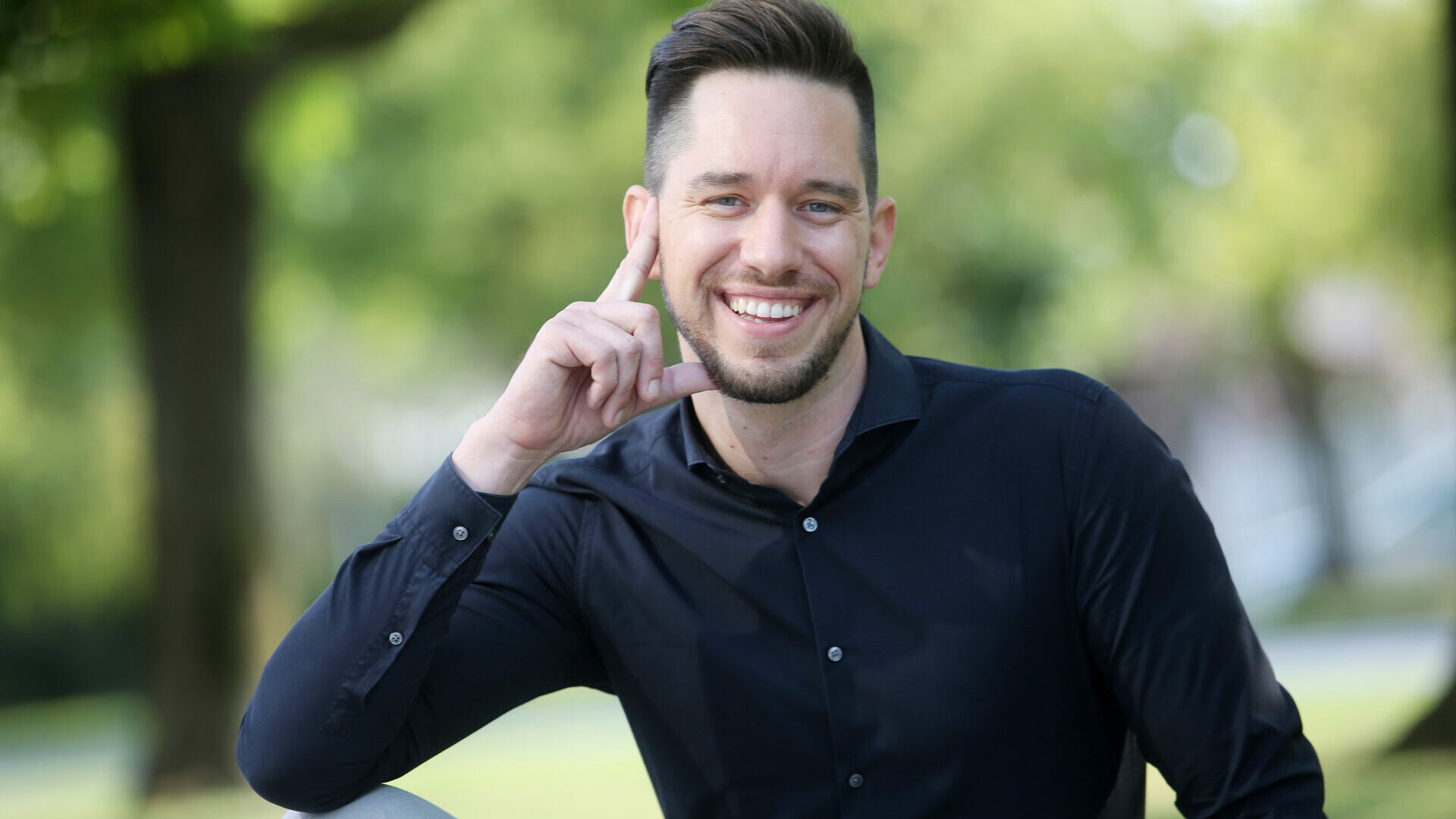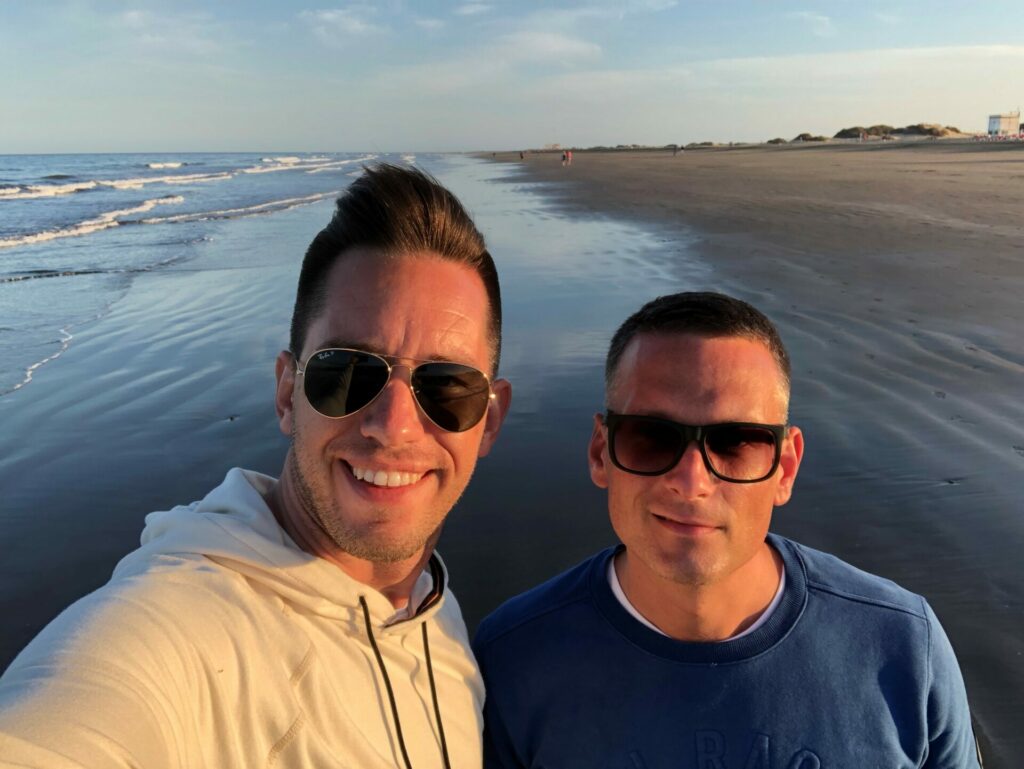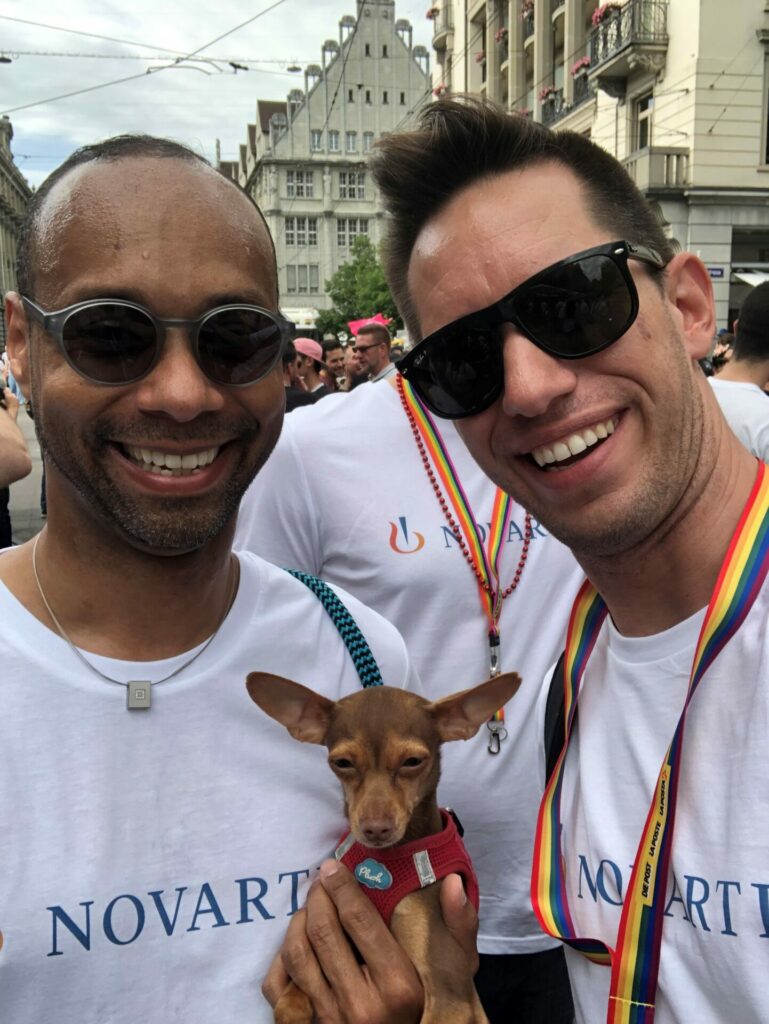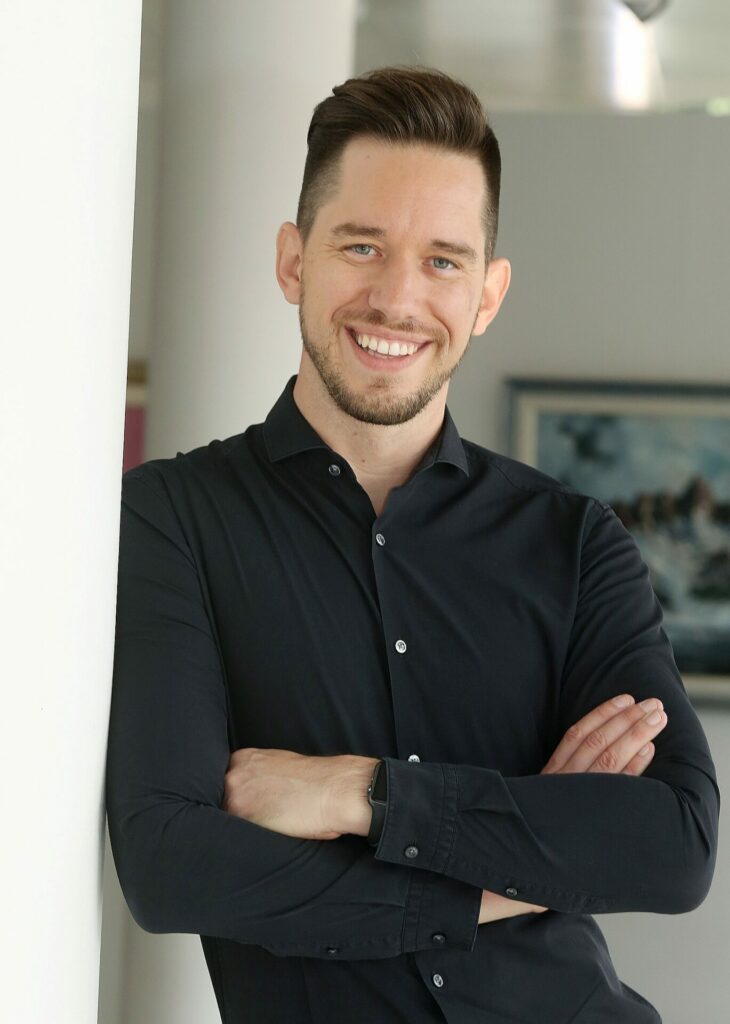Redefining Inclusion and Diversity in the Workplace: Nejc Sekula talks to myGwork
In partnership with myGwork

myGwork spoke to Nejc Sekula, head of talent diversity, equity and inclusion at Novartis, about how his experiences have shaped his belief in the vital importance of a ground-up approach to diversity and inclusion in the workplace.
When you ask people about how they got into working in diversity and inclusion, their reasons often vary. For Nejc Sekula, it was about recognising a reality. He had already been doing a lot of work in that area on top of his existing jobs, so it just made sense to combine them. “I was always doing D&I work on top of my other jobs – I’d get into the workplace and would be promoting inclusion not just of LGBTQ+ people but also women, people with disabilities, and others, at our workplace in Slovenia.”

The result? When a position opened in recruitment for the company, Nejc finally found himself able to combine these roles. He could start to recruit talent for the business, while also identifying ways of diversifying talent within the company. “Who do we recruit? Where do we recruit from? These were the questions I was asking myself.” Eventually, he was approached by Novartis, first to be a human resources manager in Ljubljana. Then, he joined the global diversity, equity and inclusion team that the company was developing.
Seeing a different perspective
Nejc was born and raised in Slovenia. He had finished his education in Minnesota USA, with his final year being spent abroad. “What I really valued was the opportunity to see a different perspective on things in life.” Realising the extent of the diversity in life, and with a newfound appreciation for the different identities that make up communities, he enrolled to study English, French, and a comparison of languages in Slovenia. This was to further explore the lessons he had learnt in the US. But this wasn’t the right fit for Nejc, so he did the next best thing. He joined a global organisation with international offices, to get a taste of a business that was present everywhere. It was here where he came out for the first time. With visible role models and inclusion policies, he was safe knowing he was supported in the workplace.

That support is now part of the lifecycle that Nejc must consider when Novartis looks to hire new talent. “I have to examine how we recruit people, how we onboard people, how we ensure that each have the right development path once they are here. I have to do this whilst keeping diversity, equity and inclusion in mind so that people will feel safe in bringing their full selves at work.”
If workplaces are inclusive enough to bring together broad identities, this acts as a beacon for new people joining and they can bring their best selves to work every day, explains Nejc. Building an inclusive and diverse workplace includes looking at reasons people may sometimes struggle, hold back, or leave. It also includes making sure that each individual is able to be an effective ally for those around them. “If someone needs accommodation in their team because of an aspect of their identity, it’s important that we have staff trained to recognise and make those accommodations where appropriate, to be an ally and to know how it’s best to help them with the specific situations.”
Making people feel more comfortable
Diversity and inclusion aren’t just vital in recruitment, Nejc says. Understanding how every section works, as well as how diverse identities fit into that work, is vital to ensuring a welcoming and inclusive atmosphere. Every process and system that an employee may encounter, from the day they apply for the job right up until the day they decide to leave, needs to be analysed and considered from every angle. Is it accessible? Do people feel comfortable disclosing their identities, and how can we address that if they don’t?
For Nejc it’s about understanding your baseline. “Diversity and inclusion should always start locally, right down to a team level. You need to examine what stage you are locally, as part of building up to a global culture.” Local context is key – diversity looks different in different locations: when you consider different historical contexts, local laws and regulations, different state structures and biases, you quickly realise that diversity and inclusion have no one set size or shape.
Measuring progress
Nejc’s advice is simple: once you have established your baseline, establish what you want to focus on. What are you going to improve, or change? How do you measure this? Create a plan – short and long term – to examine what you can change or implement now, and how this can lead to a long-term change in behaviour or company systems. Look at people’s behaviour and establish role models. In time, they will in turn create more role models and better behaviour. Finally, understand what progress is. What metrics are you measuring against? Where have you come from, and where are you headed?

Role models, Nejc believes, are a vital part of making that progress. Recalling his own experiences learning to be confident in his identity, role models played a key role. “I will never forget the openly LGBTQ+ leaders and role models in my first company. Seeing them be open, and out at work, gave me this immense understanding that this was a place where I could be me and I didn’t have to hide who I am.”
If you can be that role model for someone else, and if you can provide that sort of support for a graduate, a new starter or a team member who may be in the same position, the influence it can have on their work or career is immense. Nejc is a strong believer in the vital importance of representation, education, and awareness, and we’re certain he’s going to continue to bring all three of those things to every team he engages with.
Novartis is a partner of myGwork, the LGBTQ+ Business Community. You can check out its job opportunities here.
